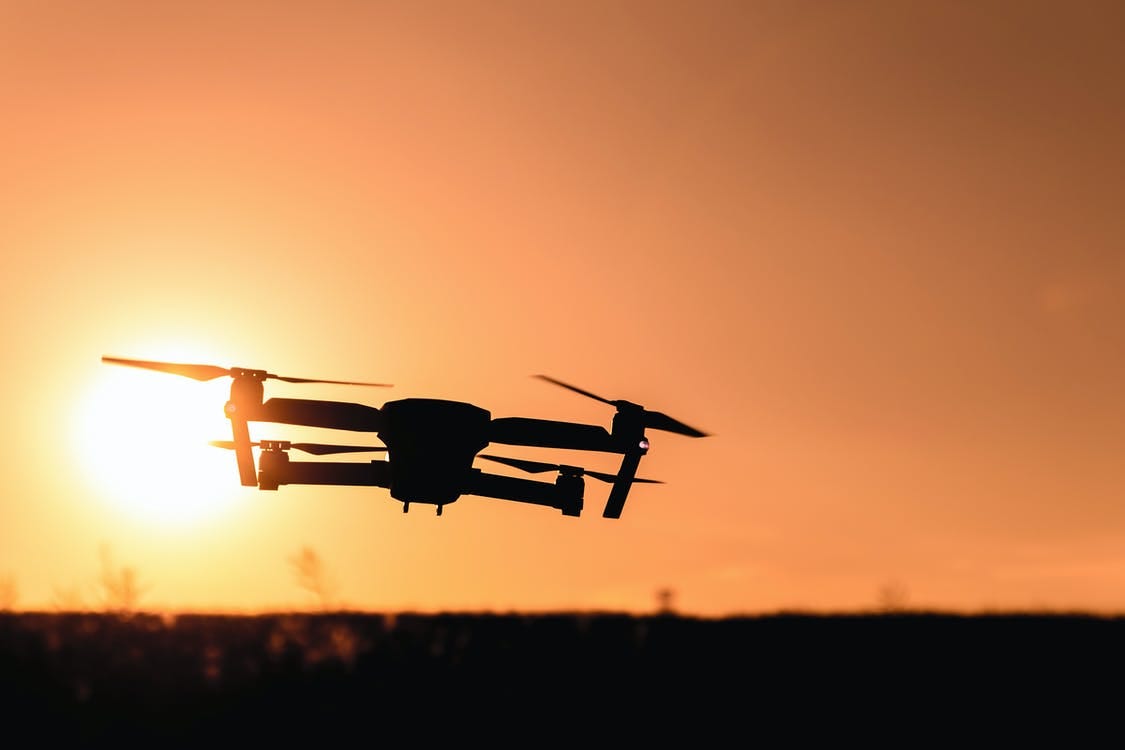Future Trends: Drone Security
Future Trends
Everything that can go online is being put online. Thus the global attack surface is continually increasing, both in the number and diversity of devices online. However, the future trends also represent an opportunity. You can develop specialty knowledge about new cybersecurity niches, which will allow you to stand out in the job market and set you up to be very in-demand in the near future.
Rise of the Drones
When you hear of drones, it’s easy to automatically think of unmanned aerial vehicles (UAVs) used for military purposes or the people you see at the park with remote control quadcopters. However, drones are on the verge of becoming big business. They offer agile solutions for a number of companies.
If you want a glimpse of the future, look no further than the UPS Flight Forward™ Drone Delivery service. UPS became the first company to receive the U.S. Federal Aviation Administration’s (FAA) Part 135 certification in 2019. It is “the highest level of certification for a drone airline, with no limits on the size or scope of operations.” UPS launched the service at the WakeMed medical center campus in North Carolina delivering specimen samples for analysis. Drones offer UPS the ability to rise above the congestion of everyday traffic.
You may see companies advertising Drone Security Specialist roles in the coming years.
According to the Swiss company Flyability, the top commercial drones on the market today are used for indoor and outdoor inspections, aerial photography, high-end cinematography, agriculture, public safety, and mapping & surveying. That wide variety of use cases will undoubtedly continue to grow as governments solidify regulation related to commercial drones.
Another industry and critical infrastructure area expanding its drone usage is emergency services. This industry includes fire stations, local town public works departments, police departments, and medical service providers. Drones are beginning to complement emergency services’ response efforts.
Drones aren’t the future; they are now. Companies are actively utilizing drones and developing further commercial use cases for them. Expect drones to become more connected and become part of our daily lives. In other words, drones will represent an expansion of the commercial attack surface, which needs to be defended.
Drone Security
At a cybersecurity industry event I once asked a handful of professionals, “How do you protect drones?” The silence that followed is the sound of opportunity. Drone security is nowhere near the top of the priorities list for the vast majority of cybersecurity professionals.
But just think of all the malicious things that hackers could do with a compromised drone. Do a little mental threat modeling. What would you do if you were a bad guy who compromised an individual or fleet of drones?
The attacks to which drones are susceptible include Denial of Service (DOS), De-Authentication Attacks, and GPS Spoofing. Drone security is really in its infancy. We are starting to see the development of relevant training though. The EC-Council currently offers a one-day Drone Hacking Workshop. We’re likely to see more drone-specific training developed for cybersecurity in the coming years. In the meantime there is plenty of room for curious people to develop their own knowledge.
What would you do if you were a bad guy who compromised an individual or fleet of drones?
If you have a general interest in drones, consider exploring the possibilities in drone security. You may see companies advertising Drone Security Specialist roles in the coming years. Developing a speciality skills sets you up to be in-demand, when future trends develop into mature cybersecurity niches. In the near-term you can use that work to highlight your interest in emerging technology. That can help you stand out in today’s cybersecurity recruiting process.



